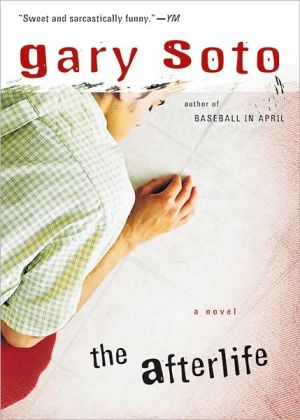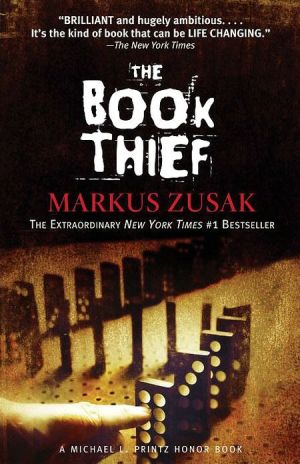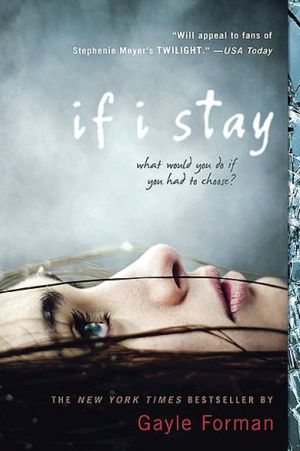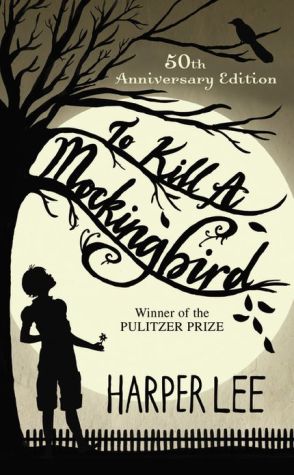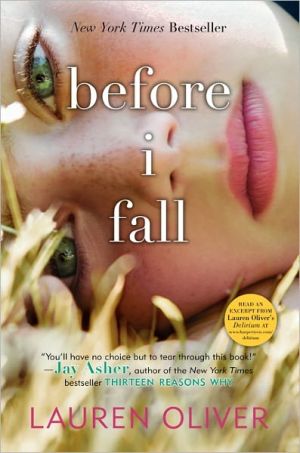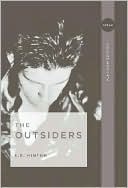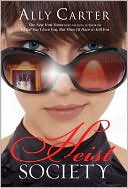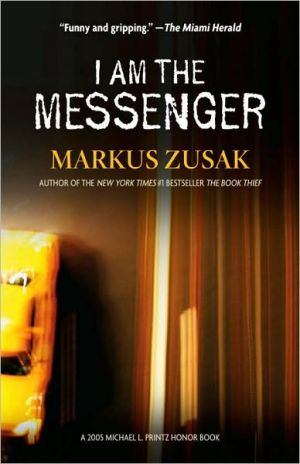The Afterlife
You'd think a knife in the ribs would be the end of things, but for Chuy, that's when his life at last gets interesting. He finally sees that people love him, faces the consequences of his actions, finds in himself compassion and bravery . . . and even stumbles on what may be true love.\ A funny, touching, and wholly original story by one of the finest authors writing for young readers today.\ \ \ A senior at East Fresno High School lives on as a ghost after his brutal...
Search in google:
After his brutal murder, fourteen-year-old Chuy discovers what life is all about.Publishers Weekly"Soto pens a sort of Lovely Bones for the young adult set, filled with hope and elegance," said PW. "The author counterbalances difficult ideas with moments of genuine tenderness as well as a provocative lesson about the importance of savoring every moment." Ages 12-up. (Apr.) Copyright 2005 Reed Business Information.
WHEN YOU'RE an ordinary-looking guy, even feo, you got to suck it up and do your best. You got to shower, smell clean, and brush your teeth until the gums hurt. You got to dress nice and be Señor GQ. You got to have a little something in your wallet. You got to think, I'll wow the chicas with talk so funny that they'll remember me. This was my lover-boy strategy as I stood in the restroom of Club Estrella combing my hair in the mirror over the sink. I was going to meet Rachel at the dance-Rachel, the girl in the back row in English, the one whose gum-snapping chatter made Mrs. Mitchell's brow furrow. I shook water from my comb and plucked the teeth like a harp. I brought the comb back into my hair again. I had to get it right.\ It was from happiness, I guess, that I turned to the guy next to me. I said I liked his shoes. They were yellow and really strange to a dude like me who clopped about in imitation Nikes but on that night was wearing a pair of black shoes from Payless. I looked back at the mirror and noticed a telephone number carved with a key in the corner-265-3519. I let my mind play: I could call that number. I could say, "Your number's on the mirror, girlie." I pictured someone like Rachel answering and roaring a frosty, "So!" Then she would be cool, come on strong, and ask, "What's your name, tiger? What's your school? What kind of ride you got?"\ Ride? I had a bicycle with a bent rim and a skateboard from junior high somewhere in the garage. But a ride? It was Payless shoes made of plastic. Shoes I was going to toss in the closet once the night was over.\ But the private world inside my head disappeared quickly. The guy next to me, the one with the yellow shoes, worked an arm around my throat, snakelike, and with his free hand plunged a knife into my chest. He stuck me just left of my heart, right where I kept an unopened pack of Juicy Fruit gum-I had intended to sweeten my breath later when I got Rachel alone. I groaned, "No way," and touched that package of gum as I turned and staggered. He lunged and stuck me a second time, just above my belly button-blood the color of pomegranate juice spread across my shirt. I thought, This is not me, and leaned against a sink, grimacing because that one hurt. My legs buckled as I turned and straightened when he stuck me in my lower back. I cried, "How come?" I saw myself in the mirror, my breath on the glass, a vapor that would disappear. I breathed on the surface and saw, in the reflection, the guy stepping away and looking at the ground as if he had dropped a quarter. Then, chin out, he stepped toward me, pulled out the shirttail from the back of my pants, and wiped his blade.\ "What did you say to me, cabrón?" he breathed in my ear. He smelled of a hamburger layered with onions.\ My answer was on the glass. It was a blot of my breath, a blot of nothing. I couldn't form a word because of how much I hurt.\ The guy in yellow shoes pushed me away. He put his penknife into his shirt pocket like it was a pen or pencil. He pulled a paper towel from the dispenser, and wiped his face as if his meanness could be stripped away. He coughed once. I could have used some of that air he was exhaling-I was starting to pant, worried because my lungs couldn't fill.\ He inspected his hands and discovered freckles of blood on his knuckles. His thumb erased some of the freckles. He washed his hands in the basin and left the water running.\ "You hurt me," I groaned, then collapsed to the floor, where I lay curled up, blood pouring evenly from three holes. When I swallowed, I tasted blood. Blood rolled over the lenses of my eyes. My body began to shudder, and I wanted to stop it, but how?\ "So?" he hissed, and flicked the wadded-up paper towel at me. He pulled open the door, and the last I saw of him were his yellow shoes. I pillowed my head on my arm, moaned. The floor was cold and dirty, with tracks of shoe prints. It was the territory of mice and cockroaches, but I was neither. I closed my eyes. When I opened them a minute later, I was dead.\ MY NAME IS Jesús, named after my father, whose own father was Maria Jesús, born in the 1940s in Jalisco, Mexico. But I was known as Chuy at East Fresno High. There was nothing really special about me-I ran cross-country, ate my lunch with friends, and with those same friends, all average looking like me, crowded around the fountain eyeing girls. It had been a good life until now.\ As I rose out of my body, I realized that the pain was gone. But so was my last year in high school. So was the fall dance, my time with Rachel, who was not yet mi novia-my girl-but might have been if I could have brought her into my arms and convinced her that I was one marvelous thing. That evening I would have had every chance. After all, I had borrowed my uncle Richard's Honda, which was tricked-out and lowered like a cat, with ten-inch speakers in the panels and clear lights that cut a path on dark streets. My uncle, only seven years older than me, was a true guy-he had filled up the gas tank for me, vacuumed the floor mats, and run a rag over the dash. He had even replaced the air freshener, a tiny cardboard tree that swayed under the dash when later I took a sharp corner, tires chirping. The wind of those turns helped scent the air with pine.\ When my friend Angel and I came to pick up his car, Uncle Richard tossed the keys at me and then put me in a headlock. "You dent my ride, and I'll kill you!" he threatened with a mean smile, and maybe meant it. But someone else had killed me first, the guy in yellow shoes, and I hadn't even driven more than ten miles in Uncle Richard's ride-the gas tank was still full.\ This was a Friday night on what had been an ordinary October, and the first pumpkins were being set out on porches. Families, I suspected, were already buying five-pound bags of candies for the troops that would show up in a week. Leaves were falling, and the lawns were growing more damp every night. The chilly mornings put people in sweaters and coats.\ But I was not going to be around for Halloween, the last year, I had vowed, that I would go trick-or-treating. Me and some friends had intended to put on masks and go door-to-door, croaking in our teenage voices, "Trick or treat." If the homeowners had ripped off our masks, they would have discovered boys that were really men. My good friend Jason, in fact, already had a beard.\ But I wasn't going to be around. On that Friday night, I rose from my body and wavered like smoke and stared at myself crumpled on the floor. My wounds were gashes that resembled the gills of fish searching for air. They were still pulsating as blood seeped and flowed to the right corner of the restroom. The floor was red, sticky. I remembered a time I spilled strawberry Kool-Aid when I was little, maybe six, and trying to show mi papi that I was a big man-big enough to carry the pitcher to the kitchen table. But I spilled the Kool-Aid, and he spanked me because I did bad.\ But what bad had I done now? I rose like a ghost. I gazed at my body, the pile that was my young skin and hard bones. My eyes were open, but they couldn't see me, for the light behind them was gone. My fingers were curled, as if I was ready for a fight. But there was no fight in me. I felt shame because I noticed the crotch of my pants was wet. Did that happen during the stabbing, or in death? It must have been after I died that my bladder released its water. I prayed that was how the body worked when you're brought down with a blade. I hated the thought that my father would pull back the sheet and look at me, his son with legs splayed and presenting a wet crotch for all to see. The shame of dying during one last piss.\ A ghost with the weight of a zero, I rose still higher. My body was lean because I was seventeen, a long-distance runner for the school, and a Saturday weight lifter in my garage. I was also an occasional brick hauler for my dad, a mason for the city who sometimes got jobs on the side. I worked side by side with my dad, his only child, shouldering bags of cement from the pickup truck to backyards.\ The ghost that was me hovered over my body and watched a guy come into the restroom rapping words to a song about a street killer. I'm sure he thought he was sweet, all suave, as he spun his own made-up rap song about death and drive-bys. But his off-key singing stopped. His mouth became an open sack when he saw me-my body, I mean-and saw that he had accidentally stepped in a puddle of my blood. He made a face at his shoes, black ones just like mine, and scraped them against the floor to rid them of bloody tracks that would follow him out of the restroom, tracks that would quickly grow faint with each step. He left the restroom in a hurry. He called the name Julio three times, each time a little louder, with greater urgency, as if he were the one stuck, not me. Who was Julio but a friend, a carnal, who tagged along with him that evening. Dudes, like chicas, never show up at dances alone; they go in pairs and return home in pairs unless one of them gets lucky. Like Angel and me. Angel was my friend on the dance floor, circling like a shark and resembling a shark-he had pointed teeth and hair that stood up like a fin. But he was a good dude, really, though more desperate than me to swing into the arms of a girl. And he was uglier than me, plus a little bit chubby around the middle.\ I was waiting for Julio and the guy with my blood on the soles of his shoes to return. They'll come in, I thought, and help me to my feet, even if it meant getting blood on their shirts and ruining the evening for them. They'll call an ambulance-one of them had to have a cell phone. But before people rushed in to see about the noise, I saw my body quiver one more time. Dang, I thought. I'm going. I'm growing cold. I imagined the cold traveling up my throat to my face and pressing against my eyes. They would close, and I would really be dead.\ Suddenly my ghost settled back in my body, and for a moment I felt myself breathe-my legs shuddered, then stilled, and I let out a hiss like the sound of a tire going flat. I had returned to life, and then died a second time.\ I felt myself-the ghost, I mean-again slip from my bones and drift toward the ceiling. I thought: What's happening? I wanted to hang on to the sink or grip something to keep me at ground level. I wanted to remain next to my body, but I was light now that I had no body for an anchor. I floated toward the rack of fluorescent lights. I drifted through the ceiling, the pink of insulation, and the tarred shingles. I found myself on the roof, the air-conditioning unit of the nightclub roaring. I rose higher, and thought I was going to pee again when I drifted off the roof and hung in the air. I looked down and spied two dudes sparking up in the parking lot. They were leaning on Uncle Richard's Honda. I wanted to holler, "Get your dirty nalgas off the car!"\ But I whispered to myself, "Man, I'm flying." I felt any second that I was going to drop like a sack of cement and burst open. But I flew and fought my instinct to flap my ghostly arms; after all, isn't that how birds stay in the air? I floated between the nightclub and a boarded-up insurance company, floated above the parked cars, and the dudes and chicas at the entrance, all of them trying to get in through double doors smeared with the fingerprints of hairspray, cologne, and adolescent sweat. I recognized my primo Eddie, a year older than me at eighteen, a high school dropout studying air-conditioning at City College. "Primo," I called, but he couldn't hear me. I looked up at the sky. The moon was nearly full and dented as a hubcap.\ In the distance, the sirens of an ambulance and fire truck were wailing for me. Or, at least, for that body on the bloody floor of a dirty restroom.\ THE GRAVITY OF my new status as a ghost began to sink in as I hovered above the roof. I was amazed by this transformation, and by how in my heart I didn't harbor hate for the dude who stuck me. It was weird. He had just taken my life, but I wasn't angry with him. In real life, people would just look at me and I would get mad. But where was my anger now? Maybe in death all that goes. And fear, too. I wasn't scared at all.\ I watched the sky until the dark paled and the sun rose pink as a scar. By then the night wind that flaps laundry and trees had vanished. La chota-the police-had come and gone, along with the ambulance that carried my body to wherever the dead are bathed and tidied up before they are lowered into the ground. My uncle came and picked up his Honda, and I saw him hammer the steering wheel with his palm. He buried his face into the steering wheel, sobbing. He drove away, scattering the leaves that had gathered around his tires.\ The cops returned, too. They went inside the club and half an hour later came out with the owner, an older man with watery eyes named Manuel Something-or-other. He appeared sad, and even sadder when he shook a cop's hand.\ "I'm sorry," I heard the owner mumble.\ The cops left, taking with them some testimony. But the testimony was with me, not the owner. I was the one killed. And I didn't feel even as bitter as aspirin. It was all weird.\ My father and mother didn't show up, though I knew they were probably crying in the shadows of our house in southeast Fresno, homeland for Mexicans and Hmongs mostly. I pictured my parents. They were in the living room, the light of the television sparkling off their eyeglasses. I pictured my mother turning her head when the telephone rang and rising slowly from the couch with a groan, the crocheted afghan on her lap falling to the floor. She would mutter something about the stupid telephone ringing just as the program was getting good, and scold her viejo-her old man, my father-for not answering it. Her face would become a mess of lines, and her mouth would tighten into a bud, then loosen as the voice on the other end told her that I had been killed. I pictured her dropping the phone and bringing a knuckle to her mouth. Then my father, heavy as cement, having inhaled so much of it, would turn his camel-large head. He would rise from his recliner to pick up the telephone and scream over the noise of the television, "Cómo?"\ Still, I was surprised they didn't come to at least circle the place where I had died. Everybody panicked when the cops first came. They had their nightsticks drawn and bullied their way into the dance hall. The police had shoved a couple of dudes against the wall, and arrested one wobbly-legged scarecrow when he couldn't manage to swallow a storm cloud of marijuana. The cloud floated from his mouth, and, high on mota, he had been pushed into a cruiser in the parking lot.\ "This is a trip," I said to myself, and screamed it from the roof. People were passing below but they couldn't hear me. I screamed my name, and no one-not even a stray dog that was kicking down the street-could hear me. I was learning about my new self.\ I could see the outline of myself, which was sort of like a figure penciled in and then erased on paper. I was vaguely visible to myself, but invisible to others-two workers on the roof on the next building were doing something to the gutters. I waved my arms, but they couldn't see me. They kept jamming a garden hose down one of the gutters as they started to blast away leaves and crap.\ "It's a trip." I formed the words on my lips. "I'm a ghost."\ My wounds were closed, my Juicy Fruit gum still in my shirt pocket. Then a horn blasted, and I jumped, scared, and drifted off the roof like a balloon, slowly descending to the street. I touched down on the sidewalk, amazed that there was nothing to it-just float off a building and land softly. Ever since I was a little dude out of my diapers, I had dreamed of flying, and I guess now that dream was coming true.\ Plus, I was invisible. A man tripping down the street couldn't see me-he was shoving a twenty-dollar bill into his wallet. He walked past me and hissed playfully at a stray cat hugging the dried bushes of that closed-down insurance company. The cat was carrying something gray in its mouth. A mouse? A pigeon that wasn't quick enough?\ Dead, with my eyes wide open, I began a new life without a body. I had nothing to fear.\ DOWNTOWN FRESNO. I floated into Longs Drugs right through the plate glass and positioned myself over the head of a cashier, her eyes narrow as hatchets as she announced over the intercom, "Rafael, code fourteen, aisle six." I knew the meaning of the code-a shoplifter was sliding something under his jacket. I glanced up at the sign posted above aisle six: shampoo and hair care products. My bad. A teenage girl out to improve her looks was snagging one thing or another, and I would have kicked down that aisle except I confronted my uncle Richard and my cousin Eddie-Richard was cradling flowers in his arms and Eddie had large bags of barbecue potato chips under his arms as if they were pillows. Their steps were slow, as if they were wading in water. Their eyes were puffy, their faces dark from not shaving.\ "Tío," I called. I pointed a finger at my chest. "Primo, it's me."\ They couldn't hear me. They passed through my outstretched arms and headed to the cashier, whose hatchet eyes had become sharper.\ I had never seen Uncle Richard with flowers before, but then again I had never seen him cry before, like he did early this morning in his Honda. They were going to visit my parents, I realized, and they believed it was smart of them to bring something sweet-smelling to my mom. And the potato chips? Snacks for the ride over.\ At my parents' house, there would be others to lament my death at such a young age. Angel, mi carnal, would be there, with the cement bags of guilt on his shoulders. I should have been with him, he would argue with himself. We could have took the dude! "He would be alive," he would cry, and I would cry in return, "Chale, we would both be dead!" In the three fights that I seen Angel in, he had lost them all. The guy was just a chubby, peace-loving dude.\ I stood between Richard and Eddie. Richard said, "I feel weird." He rubbed his arm with his free hand.\ Right then, I understood my power. I was dead, but I could offer a chill as cold as ice.\ Eddie looked toward the ceiling. "It's the air-conditioning. It's set too cold."\ They bought their goodies and were out the door just as the cashier cried into the intercom, "Rafael, code fourteen, aisles seven, nine, and fourteen."\ Incredible, I thought. People lifting the whole store.\ Copyright © 2003 by Gary Soto\ All rights reserved. No part of this publication may be reproduced or transmitted in any form or by any means, electronic or mechanical, including photocopy, recording, or any information storage and retrieval system, without permission in writing from the publisher.\ Requests for permission to make copies of any part of the work should be mailed to the following address: Permissions Department, Harcourt, Inc.,\ 6277 Sea Harbor Drive, Orlando, Florida 32887-6777.
\ From the Publisher"Soto writes with a touch as light as Chuy's ghost and with humor, wonderment, and generosity toward life."—Kirkus Reviews\ "Sweet and sarcastically funny."—YM\ \ \ \ \ \ Publishers Weekly"Soto pens a sort of Lovely Bones for the young adult set, filled with hope and elegance," said PW. "The author counterbalances difficult ideas with moments of genuine tenderness as well as a provocative lesson about the importance of savoring every moment." Ages 12-up. (Apr.) Copyright 2005 Reed Business Information.\ \ \ Children's LiteratureChuy's "life" after death experience comprises what he sees, hears, and feels for the first few days after he is stabbed three times and left to die in the restroom of the Club Estrella. He spends the next three days flitting from one scene to another—his parents house, the crime scene, hang out of the murderer, back to his home, over to his cousins, etc. He wants to tell them he is all right, but he is not really, having died before his life started. Chuy's mother wants his cousin to take revenge and Chuy watches his mother hand his cousin a knife. Chuy is not sure now he can stop it and eventually the cousin just gives the knife back. The murder remains a mystery—Chuy says, "Nice shoes" to the dude wearing yellow shoes and the next minute Chuy is dead. This was a reason to be killed? Perhaps it shows the senselessness of a brutal murder and a life wasted. Chuy meets another recently dead teenager who is remorseful for taking her own life, but the book does not dwell on the remorse. The pair now flit together to her house, the car where she committed suicide, back to her parents. Interesting concept, but hard to know the real substance of the book. 2003, Harcourt, Ages 14 to 18. \ — Janet L. Rose\ \ \ \ \ KLIATTTo quote the review of the hardcover in KLIATT, September 2003: Chuy was looking forward to his last year of high school and especially to meeting Rachel, the girl from the back of his English class, at tonight's dance. However, he never expected to be on the sharp end of a knife wielded by a guy in yellow shoes in the club bathroom. Like a Latino The Lovely Bones, Chuy tells the story of life after death, of what happens as he drifts through East Fresno watching the world go on after his stabbing. He moves with the wind, occasionally catching a ride, and he visits his friends and family and even finds good old yellow shoes again. All the while, he questions his new state of being, sees just how much he can "touch" in the land of the living, and wonders what will happen as he slowly fades away. He is soon joined by Crystal, a girl who has committed suicide over a couple of boyfriends, and together they take one last trip to see the people they will leave forever as they disappear limb by limb. As they close the chapters of their lives, they decide to face what is to come, the afterlife, together. Soto uses a light touch and his usual humor in visiting "the place beyond," and readers can't help but like Chuy and cheer him on as he finally gets the girl. KLIATT Codes: JS—Recommended for junior and senior high school students. 2003, Harcourt, 158p., Ages 12 to 18. \ —Michele Winship\ \ \ \ \ VOYAIn this story about a teenage boy's coming of age, Soto kills off his main character Chuy by page four. Yet his death is just the beginning as the rest of the book follows Chuy in the afterlife where he observes his friends, family, strangers, and even his murderer while in a ghostlike state. To pull off this horror conceit in a realistic teen novel, Soto creates a set of rules for the afterlife about how ghosts move, about how they can communicate with the living, and even about the span of afterlife. With his poetic training, Soto's evocative language creates a vivid vision of life after death filled with regret, guilt, and even humor. But it is not the big stuff that creates a page-turning read. It is the small scenes: Chuy worries that his mother will find his pack of never-to-be-used condoms; he offers a ghost-to-grave apology to his grandfather; and he observes the moment of silence held for him before a school basketball game. The message is that Chuy was just an average teen to whom no one paid much attention, the opposite of Crystal, a teen ghost girl with whom Chuy falls in love halfway through the book. Although the romance works, Crystal is not as fully developed as Chuy, and their back-story chance meeting years ago is one of the few misfires in the story. This great piece of young adult literature shows that realism is not necessary to explore the teen experience in an honest way. VOYA CODES: 4Q 4P J S (Better than most, marred only by occasional lapses; Broad general YA appeal; Junior High, defined as grades 7 to 9; Senior High, defined as grades 10 to 12). 2003, Harcourt, 176p., $16. Ages 12 to 18. \ —Patrick Jones\ \ \ \ \ From The CriticsChuy is a 17-year-old boy, born in Mexico and raised in Fresno, Calif.Although he is tragically murdered in the bathroom of a night club, his sudden death brings about many revelations about life, falling in love, and relationships. Average in looks and in life, Chuy narrates his short life and newly acquainted afterlife as he details his experiences, feelings, and what he learns as a ghost. The prequel to Soto's popular Buried Onions, which takes a look at events surrounding Chuy's death from the point of view of his cousin. Readers will enjoy Soto's The Afterlife, a creative and original journey of life and death as seen through the eyes of Chuy. 2003, Harcourt Children's Books, 168 pp. Ages young adult. Reviewer: Kim Morgan\ \ \ \ \ School Library JournalGr 6 Up-Soto's twist on the emerging subgenre of narratives in the vein of Alice Sebold's The Lovely Bones (Little, Brown, 2002) offers a compelling character in the person of 17-year-old Chuy, murdered in the men's room of a dance hall the evening he plans to connect with the girl of his heart's desire. Unfortunately for both Chuy and readers, what happens after death is that the teen's once engaged and engaging spirit seems to dissipate along with his "ghost body." He floats around Fresno, CA, making seemingly random sightings of his murderer, local kids, and-only after a couple of days and at a time when his ghost body is beginning to dissolve limb by limb-other ghosts. He finds a new heartthrob in the form of a teen who has committed suicide and is befriended by the wise ghost of a transient whose life he tried to save. Grieving friends and family unknowingly are visited by Chuy, and he is startled to discover that his mother wants violent revenge for his death. This plethora of plot lines wafts across and past the landscape of a narrative as lacking in developed form as Chuy finds himself becoming. After a strong start, The Afterlife seems to become a series of brief images that drift off as though in a dream. Soto's simple and poetic language, leavened with Mexican Spanish with such care to context that the appended glossary is scarcely needed, is clear, but Chuy's ultimate destiny isn't.-Francisca Goldsmith, Berkeley Public Library, CA Copyright 2003 Reed Business Information.\ \ \ \ \ Kirkus ReviewsSeventeen-year-old Chuy dies in the opening scene of this view from beyond; thereafter the story is told by his ghost, "invisible and touchable as light." Stabbed three times after commenting on a guy's yellow shoes in the restroom of Club Estrella, Chuy never gets to dance with his friend Rachel. Instead, "like a balloon in the wind," he floats around town observing the life he's left. He meets and falls in love with Crystal, who has committed suicide, helps a dead homeless man, flies in formation with some geese, and even takes in a Raiders game. Chuy realizes that he'll soon be heading for the afterlife but is grateful for the life he had. The ghosts offer no inside information on the big questions: Do we come back? Does heaven exist? How does the Almighty decide who lives and dies? Soto writes with a touch as light as Chuy's ghost and with humor, wonderment, and a generosity toward life. (Fiction. 12+)\ \
